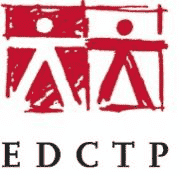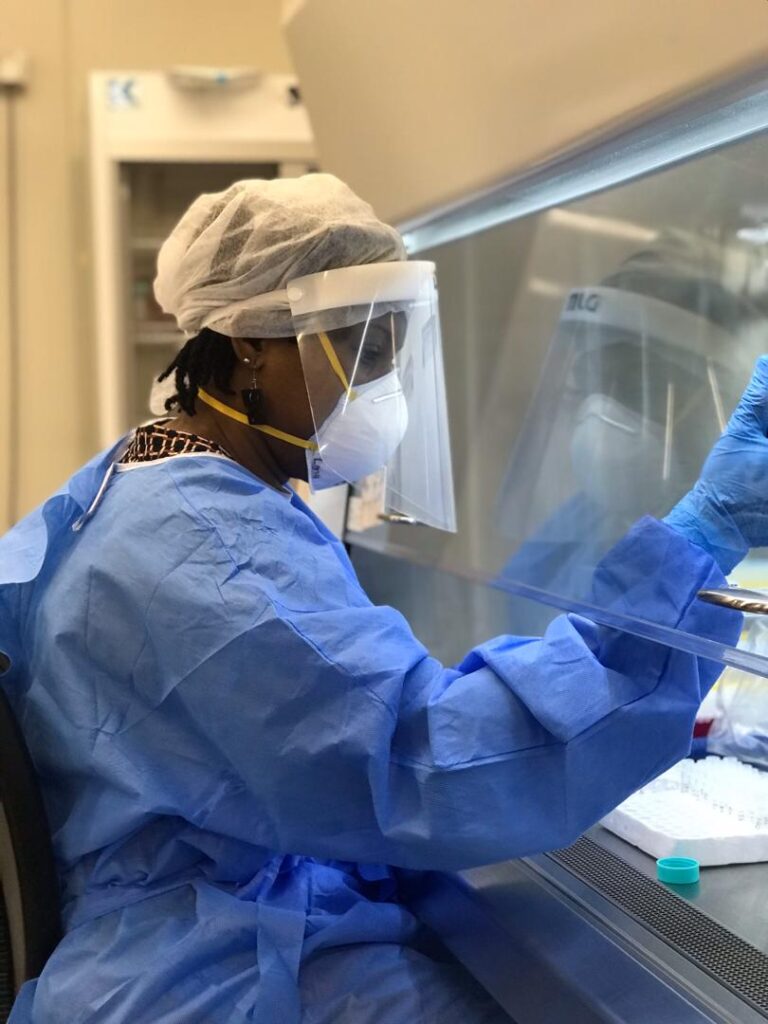Dr. Helena Lamptey wins EDCTP-AREF Preparatory Fellowship Award (TMA2018PF-2535)
Dr. Helena Lamptey is Research Fellow in the Immunology Department of the Noguchi Memorial Institute for Medical Research. Her research interest is in Immune mechanisms and host receptor polymorphisms involved in the risk of viral and infectious diseases.
This fellowship aimed to provide mentored-research opportunity for early career scientists to acquire new skills from well-equipped laboratories in reputable host institutions to enhance their career development.
Dr. Helena Lamptey was hosted by the Laboratory of Experimental Virology, Amsterdam University Medical Centre, through collaborations with Prof. Ben Berkhout’s laboratory, under the mentorship of Dr. Alexander Pasternak. As part of her fellowship, she had training in laboratory techniques such as droplet PCR, cell culture, virus transfection and infection assays, fluorescent activated cell sorting (FACS), Sanger and next generation sequencing. She also acquired knowledge in bioinformatics tools for NGS analysis.
During her fellowship, she used her newly acquired skills to generate preliminary data on the study below.
Title: The Role of Fc gamma Receptor (FcγR) gene polymorphisms in HIV infection progression and treatment outcomes in Ghanaian Adults.
Background: During HIV infection the host immune system elicits antibodies to control the virus. Depending on receptor type, Fc Gamma Receptors (FcγR) can regulate immunity by causing cell activation or inhibition in response to infections. There are differences in HIV infection progression and treatment outcomes among different patients. One of the factors hypothesized to be the cause of these differences is FCGR polymorphisms. Genetic variations that occur in FCGR genes such as Copy Number Variations (CNV) and Single Nucleotide Polymorphisms (SNPs) have been shown to affect Fc-mediated effector functions. These variations could modify FcR expression and IgG isotype binding, which would affect HIV infection risk and disease progression.
Although the burden of HIV in Africa is high, data is lacking on the effect of FCGR polymorphisms on HIV disease progression and antiretroviral therapy (ART) response in African populations. Therefore, it is important to determine the impact of host FCGR polymorphisms on HIV infection progression and ART response in the Ghanaian population.
Aim:
· To genotype FcγRIIa, FcγRIIb, FcγRIIc, FcγRIIIa and FcγRIIIb SNPs and copy number variants associated with HIV infection and treatment outcomes.
· To measure the reservoir size of the patients (total HIV DNA, cell associated RNA).
· To evaluate virological and immunological biomarkers of the HIV-1 latent reservoir.
Methods: In this pilot study, single-nucleotide polymorphisms (SNPs) in FcγRIIIa, FcγRIIa, and FcγRIIb genes were determined by Sanger sequencing in 50 HIV-infected ART-suppressed individuals. HIV reservoir size was determined by quantifying total HIV DNA (vDNA) and cell-associated unspliced (US) HIV RNA by RT qPCR. Association analysis was performed using three coding SNPs, one per gene (FcγRIIIa-rs396991, FcγRIIa-rs1801274, and FcγRIIb-rs1050501).
Preliminary Findings: The median reservoir size as estimated by vDNA copy number was 116 (range, 1 – 5798) copies/million cells and US RNA was detectable in 15 out of the 50 samples. Our analysis found the median reservoir size was almost 3 times larger in males compared to females who are suppressed (p=0.038). Reservoir size was observed to be larger in younger patients compared to those older, however, not statistically significant. However, there was no significant associations between the FcγR SNPs and HIV vDNA or US RNA.
Studies in larger cohorts are necessary to explore associations between FcγR polymorphisms and HIV reservoir. Further FCGR genotyping and reservoir size measurement on the H-CRIS cohort is ongoing and also on the evaluation of the immunological biomarkers associated with HIV-1 latent reservoir.
This fellowship helped to build capacity and strengthen her competence in the field of HIV immunology, as well as to enhance her career development into an independent investigator in HIV translational research. The skills and data generated will help to apply and win grants and conduct independent research, thus making her more valuable to the university community. The fellowship also offered opportunities for networking and scientific collaborations between Amsterdam University and University of Ghana.
This project is funded by EDCTP-AREF preparatory fellowship supported by the European Union
(FCGR-HIV TMA2018PF-2535)



